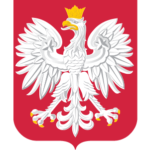About us
The Institute of Pedagogy originated from a long tradition of pedagogical education in Silesia and Cieszyn Silesia which, over many years of institutionalisation, adopted the form of academic education at the University of Silesia, established in 1968. The Institute has gained its current form due to the merger of the Faculty of Pedagogy and Psychology and the Faculty of Ethnology and Educational Sciences in Cieszyn, initiated by the reform of the University structure in 2019. Right now it functions as a research unit within the Faculty of Social Sciences of the University of Silesia in Katowice.
The Institute employs more than 120 research and teaching staff, including 9 titular professors and nearly 40 associate professors. The Scientific Board of the Institute of Pedagogy (the Board of the Discipline) has the powers to confer the degrees of PhD and associate professor in social sciences. The Institute runs the following scientific journals: “Chowanna”, “Edukacja Międzykulturowa” and “International Journal of Research in E-learning”.
Researchers actively apply for scientific grants to national and international agencies. As part of their scientific work, the employees of the Institute of Pedagogy also cooperate with researchers and academic centres from many countries (Great Britain, Malta, Kenya, Ukraine, the Czech Republic, Slovakia, France, Austria), with international organisations (Council of the Baltic Sea States) and with various national institutions and organisations (Ombudsman for Children, Children’s Rights Institute, Ministry of Justice, Ministry of National Education), as well as local government units and educational institutions.
The research conducted at the Institute is pursued in the fields corresponding to global trends: education, health promotion, development and optimisation of the quality of life of individuals, groups and societies in the conditions of increasing multiculturalism and socio-cultural, ethnic, religious and economic diversity. Some of the research is of interdisciplinary character and is performed in teams with the representatives of other social sciences, as well as theological sciences or humanities. In general, research is performed with the use of modern scientific methods and in compliance with high ethical standards, as well as with respect for human rights, particularly for subjectivity and use of activating participatory methods.





